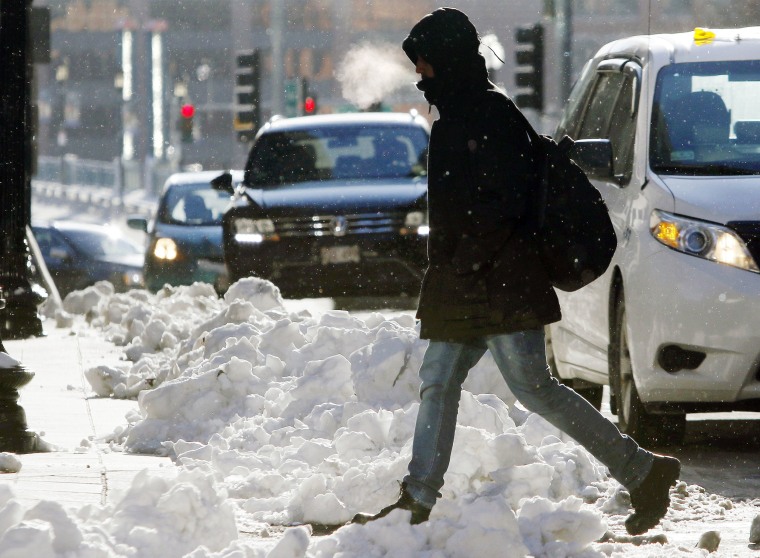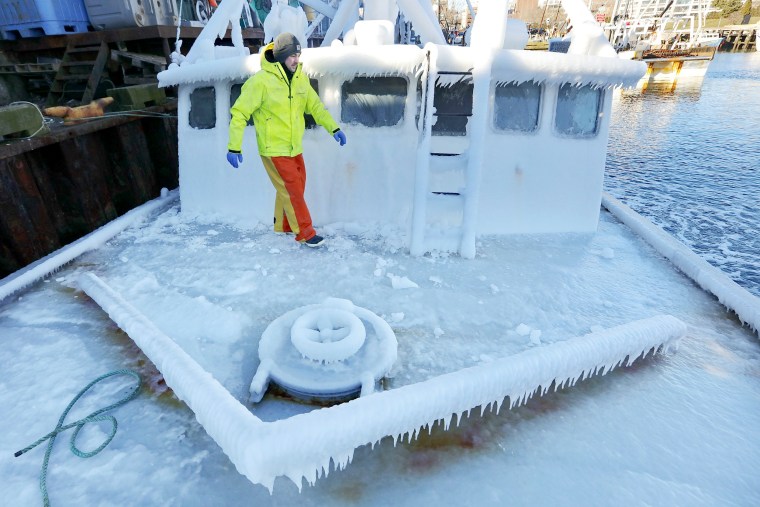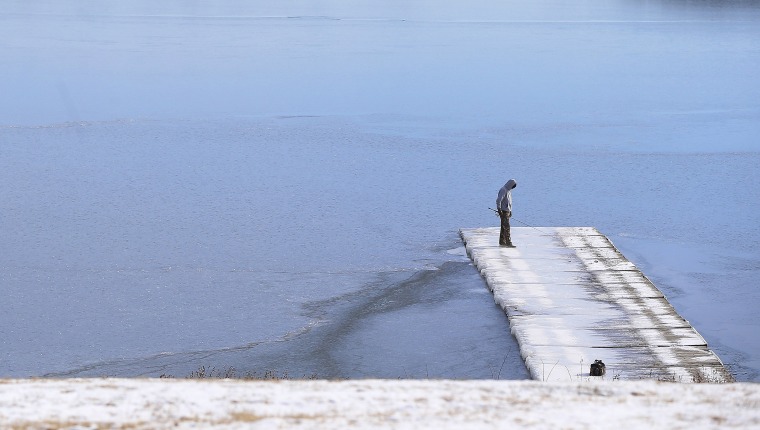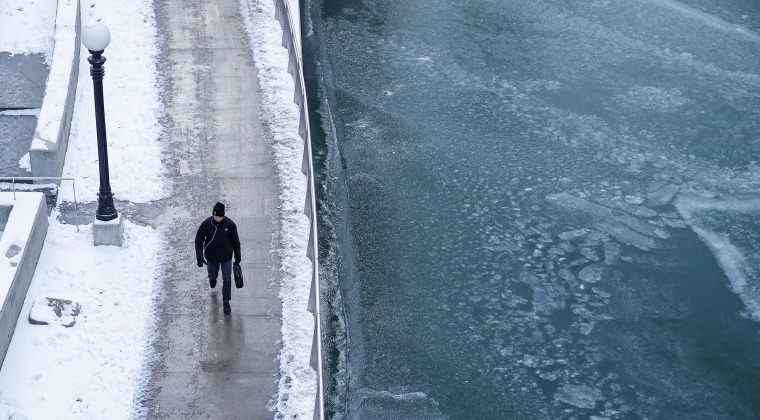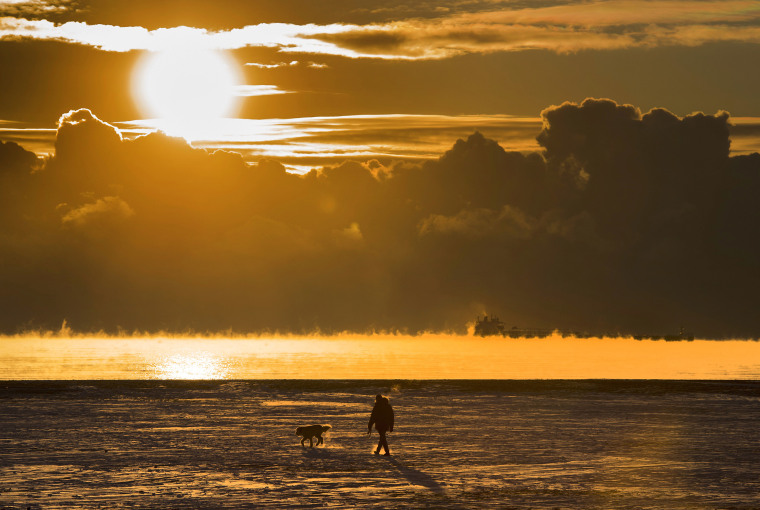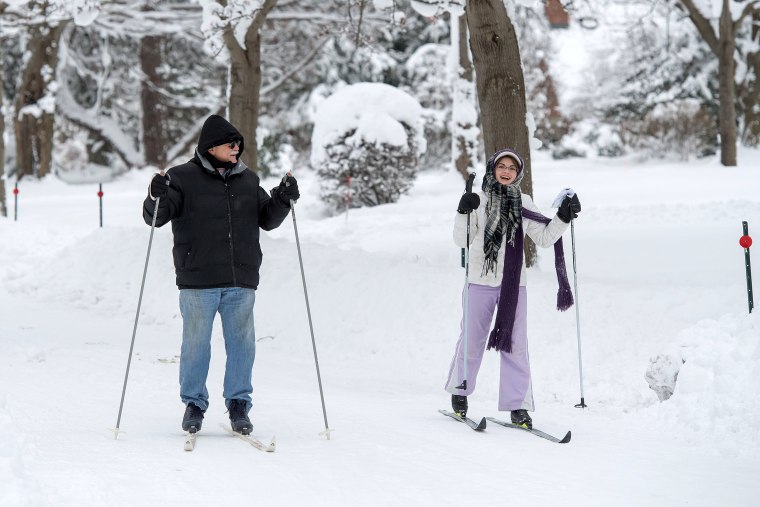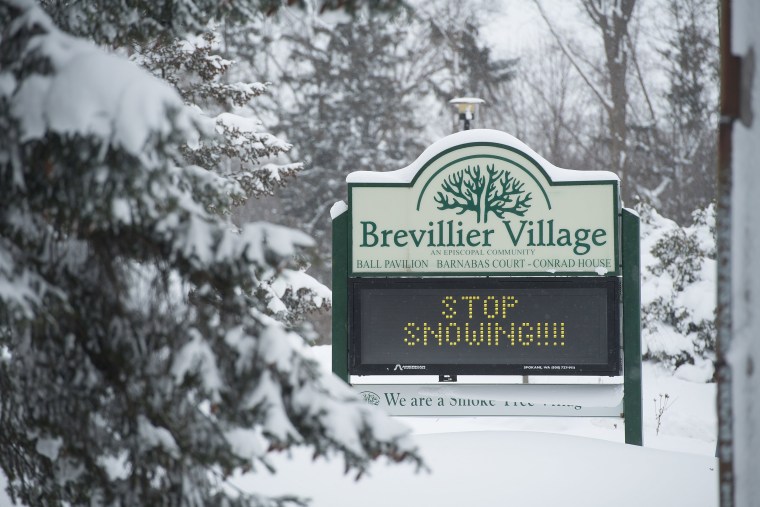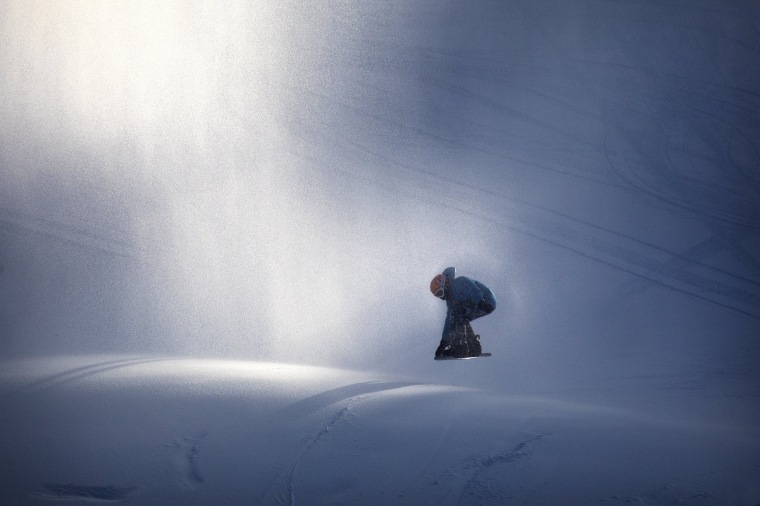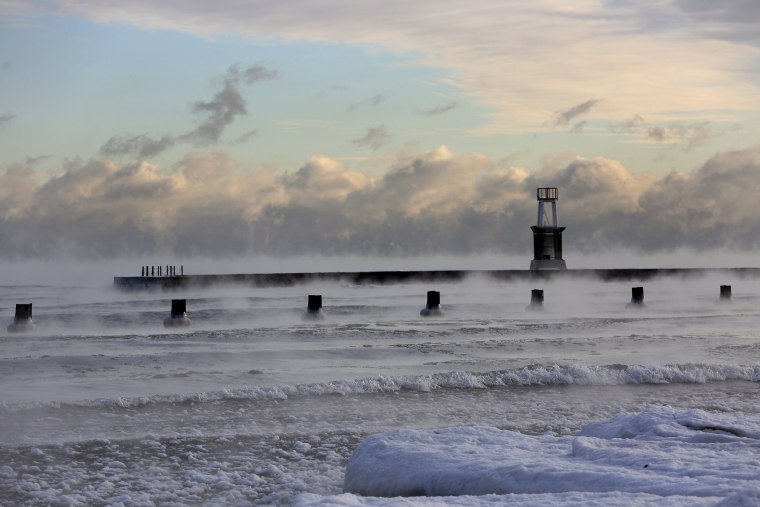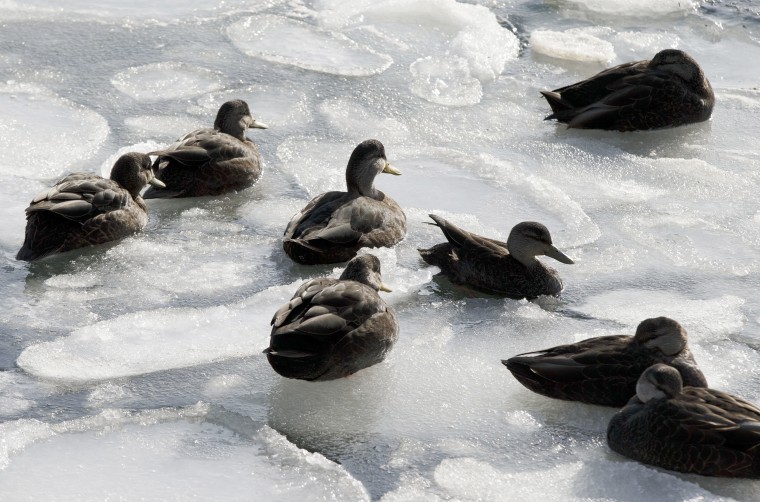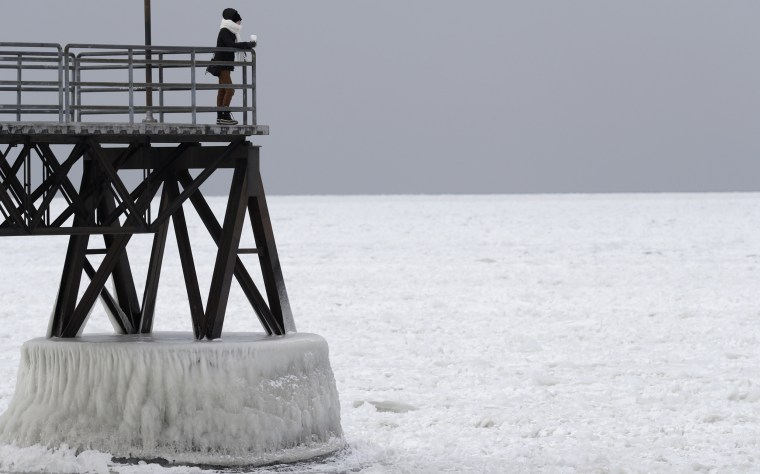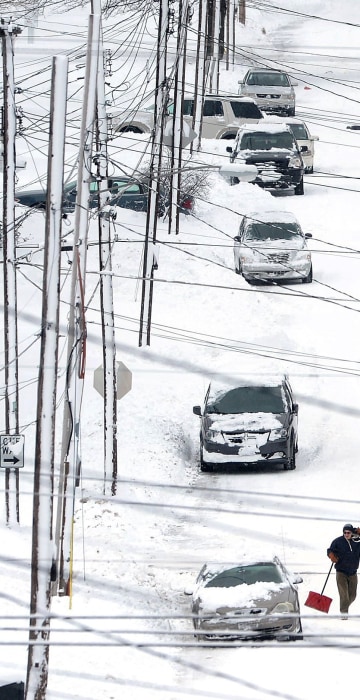
U.S. news
Arctic blast leaves half the country in deep freeze
NBC News Clone summarizes the latest on: Artic Blast Leaves Half Country Deep Freeze N833521 - Breaking News | NBC News Clone. This article is rewritten and presented in a simplified tone for a better reader experience.
The East Coast and Midwest are in the grip of a brutal cold snap.
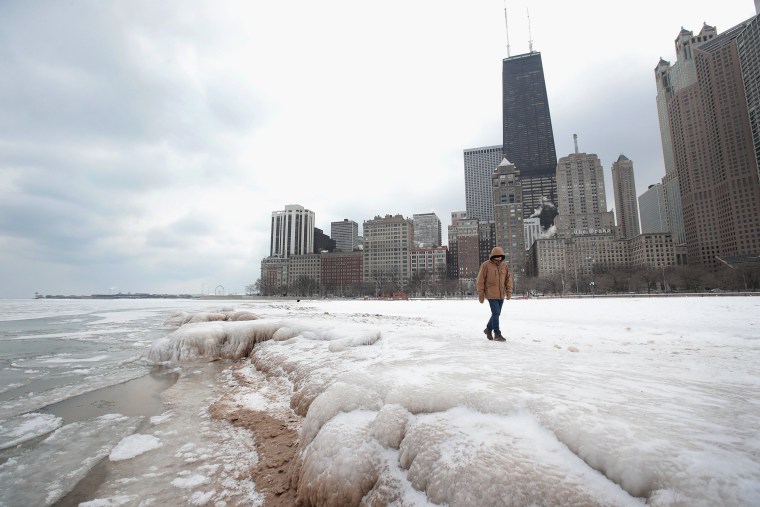
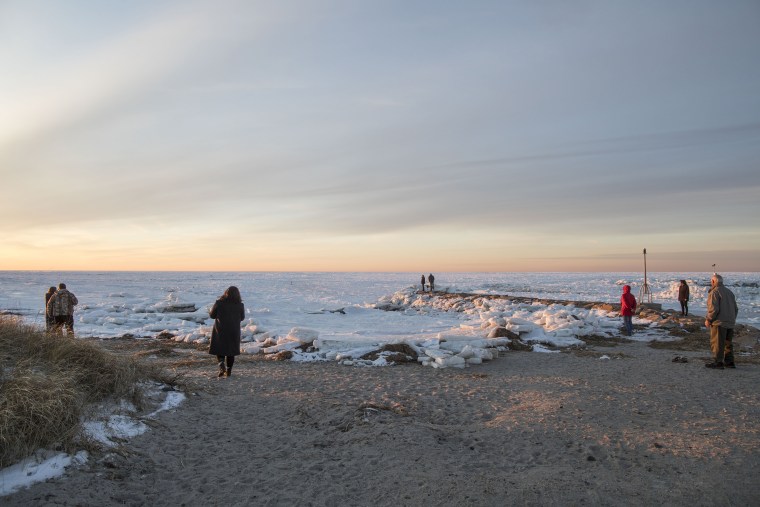
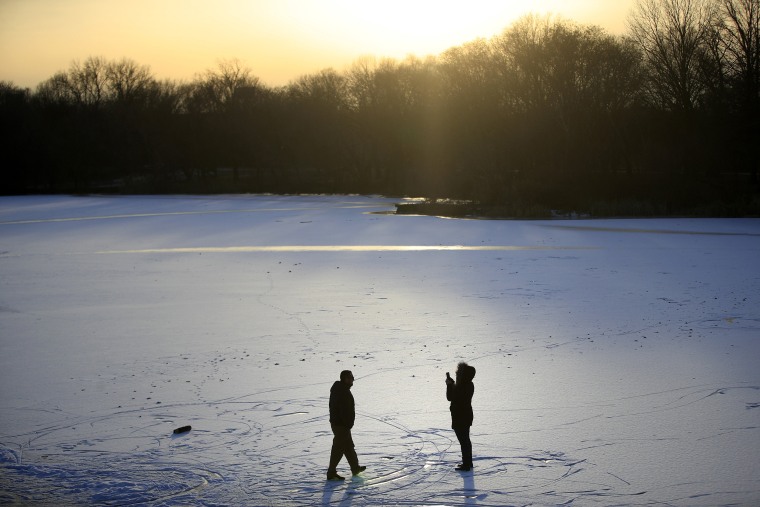
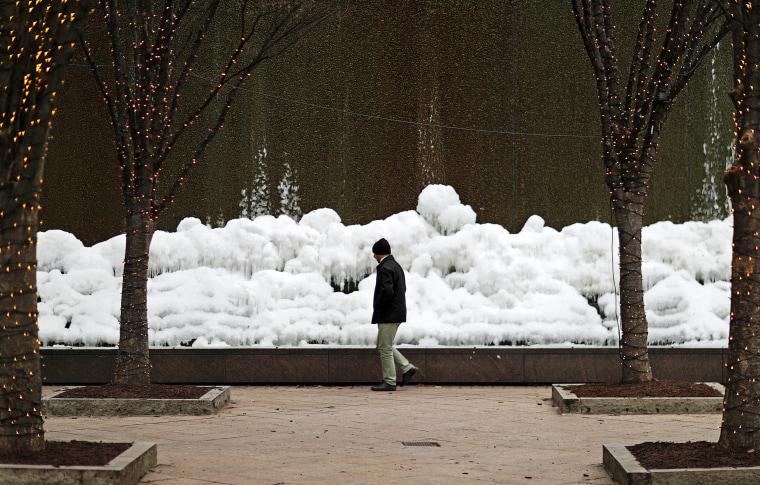
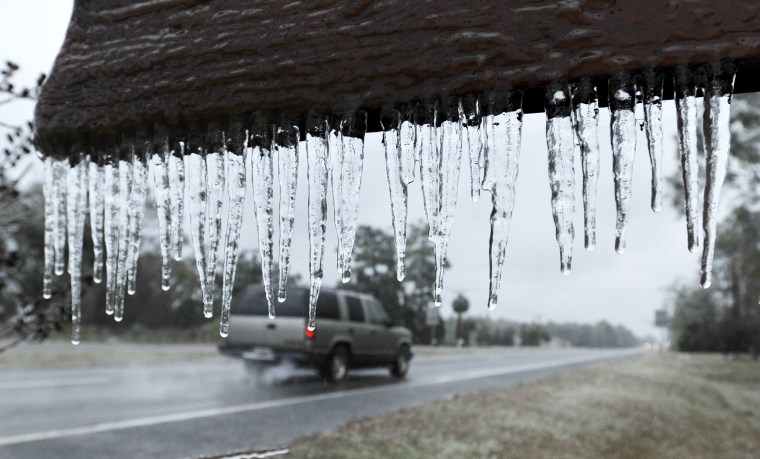
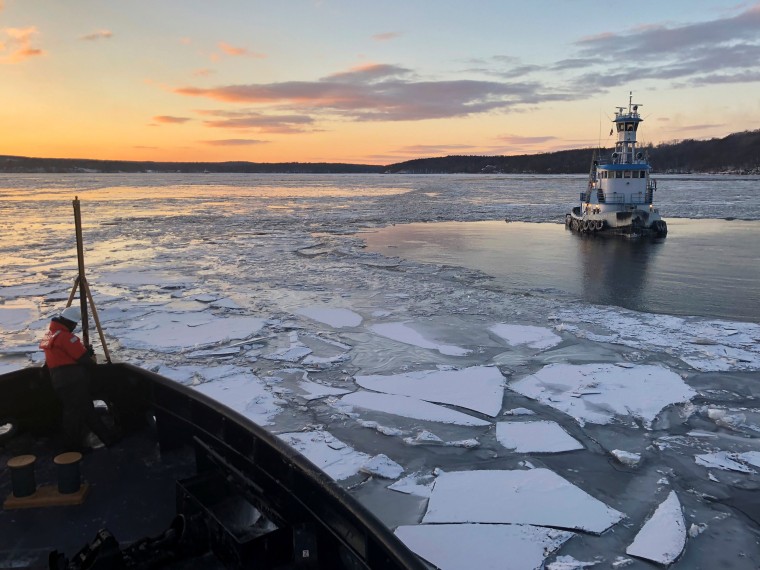
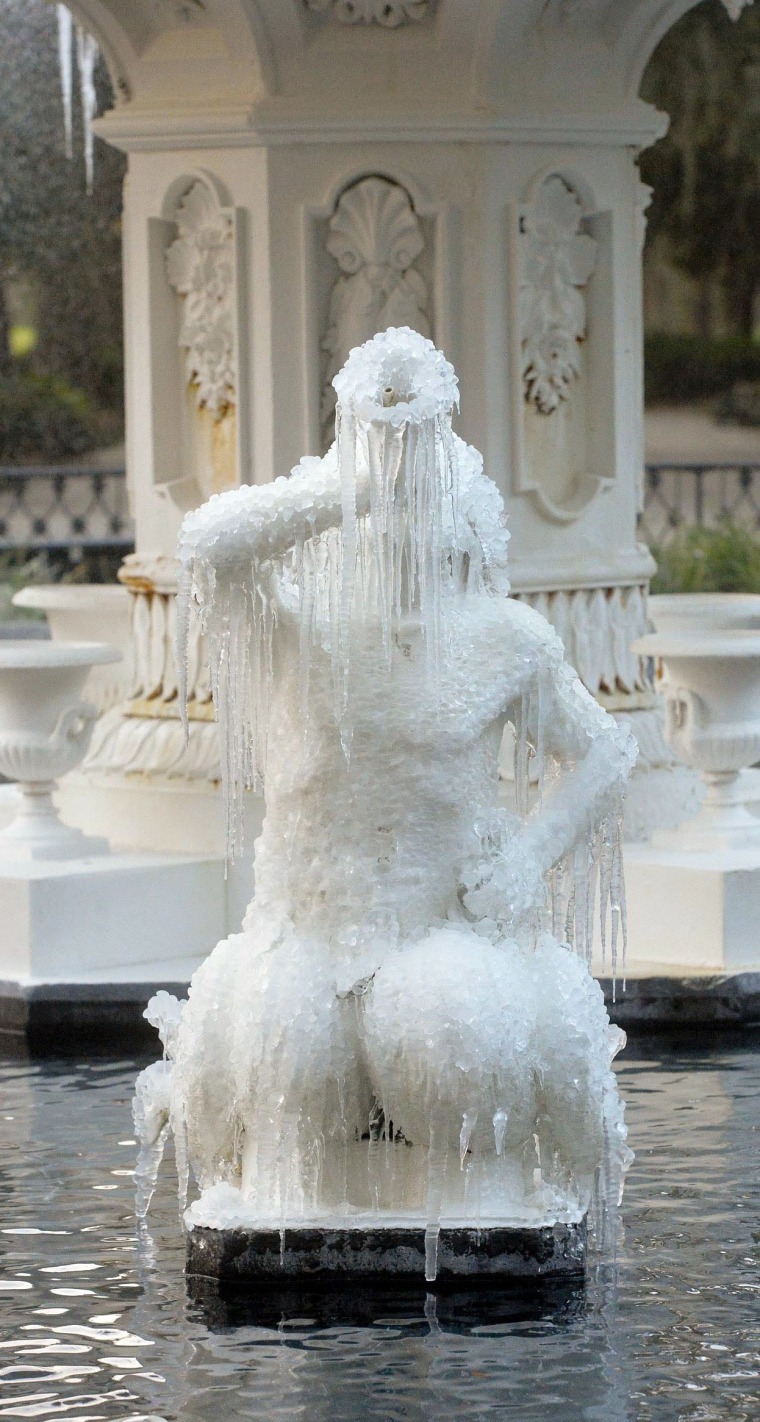
Georgia
Icicles form on the tritons in the Forsyth Park Fountain on Jan. 2 in Savannah.
Savannah is shivering through a rare bout with icy weather, with the National Weather Service predicting that up to 2 inches of snow and sleet could fall on the typically balmy coastal city.
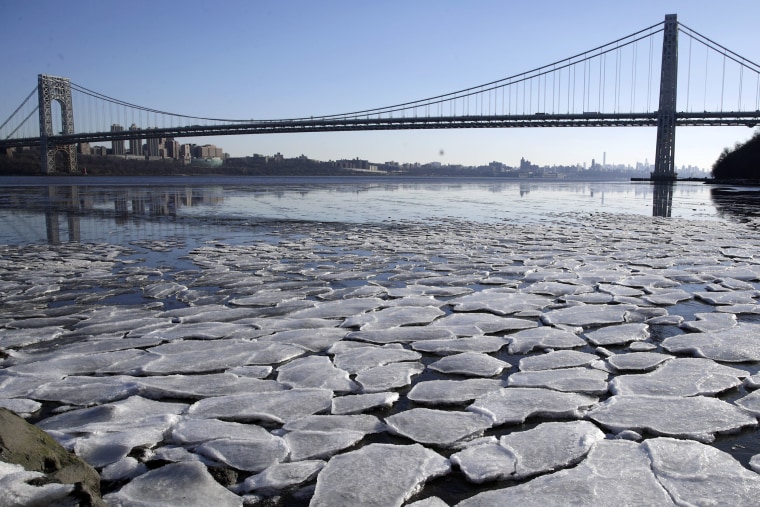
New Jersey
A layer of ice is broken into pieces floating along the banks of the Hudson River at the Palisades Interstate Park with the George Washington Bridge in the background on Jan. 2 in Fort Lee.
The Northern New Jersey region continued to experienced deep cold weather to start the new year.
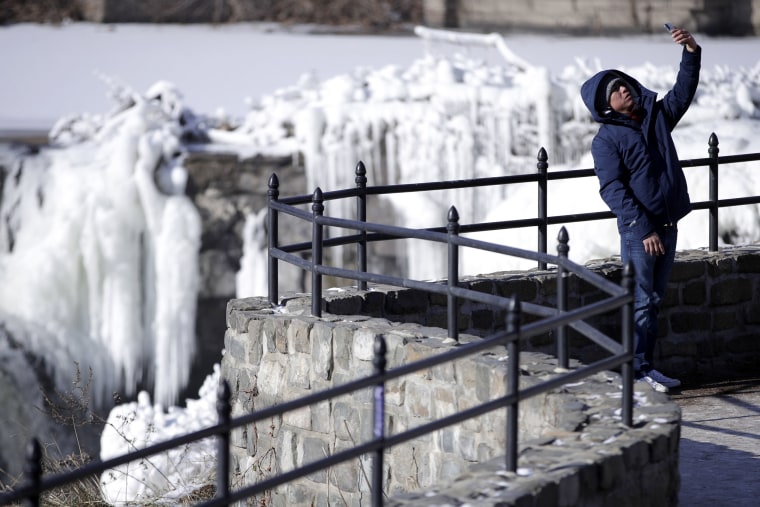
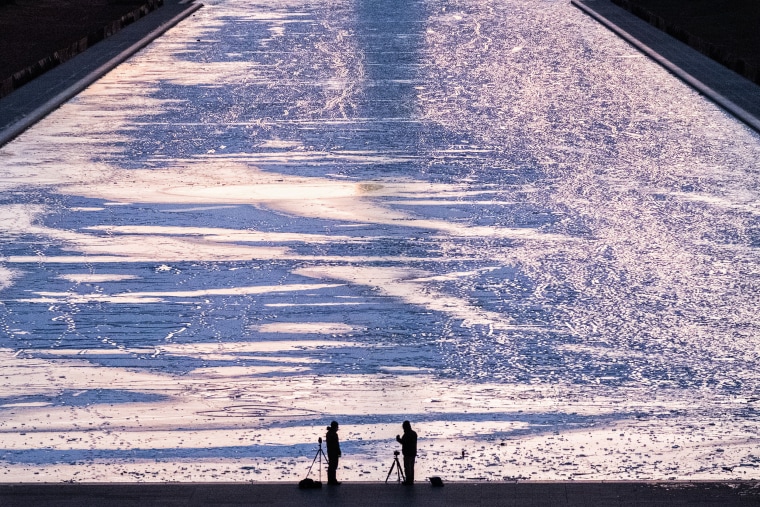
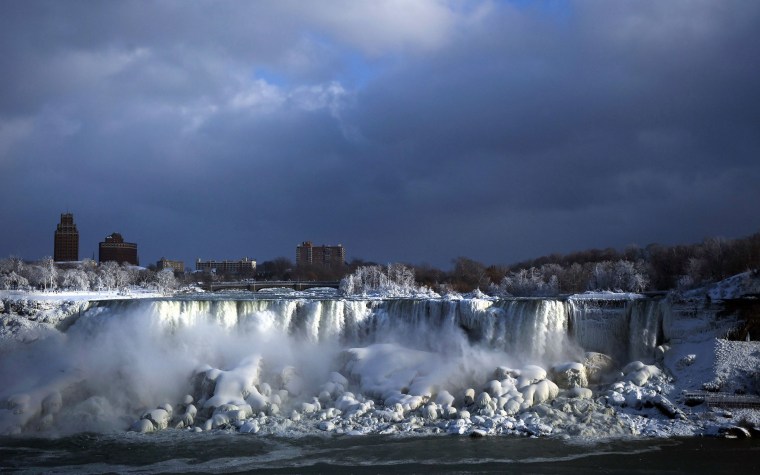
Ontario
Water flows over the American Falls as ice forms in this view from the Canadian side in Niagara Falls on Jan. 2.
Almost every year frigid temperatures transform the falls into an icy winter wonderland when the mist is blown back, freezing on the landscape.
Photos: Frozen Niagara Falls stuns visitors who dare to brave bitter cold
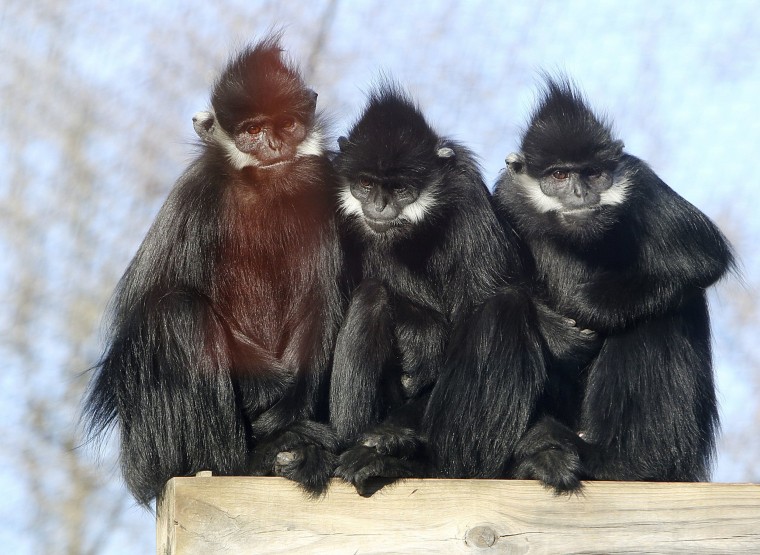
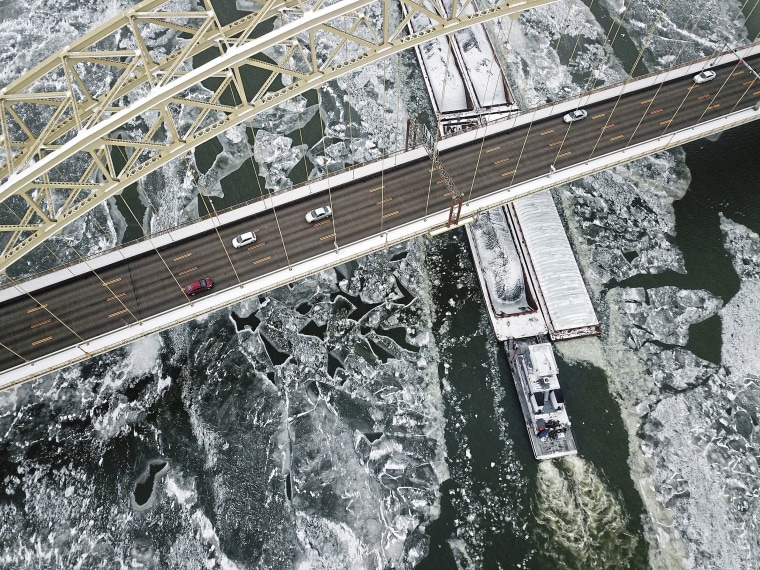
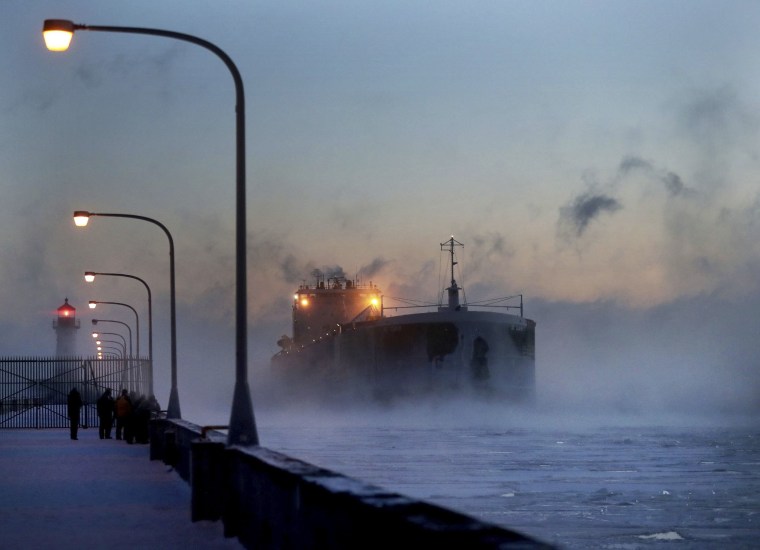
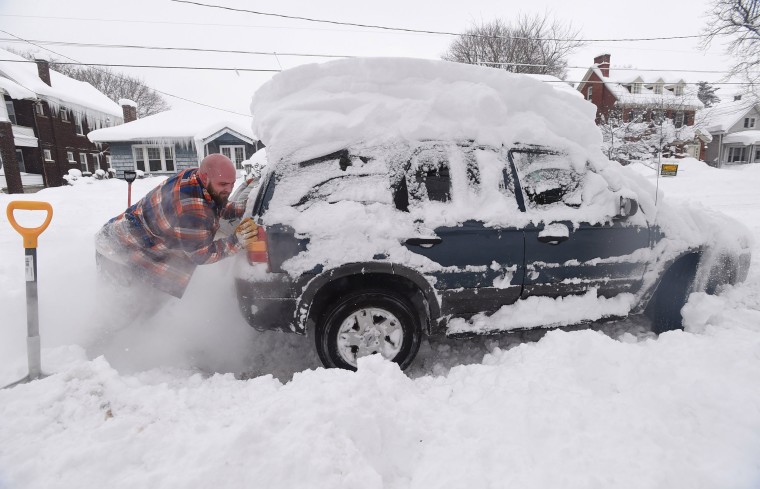
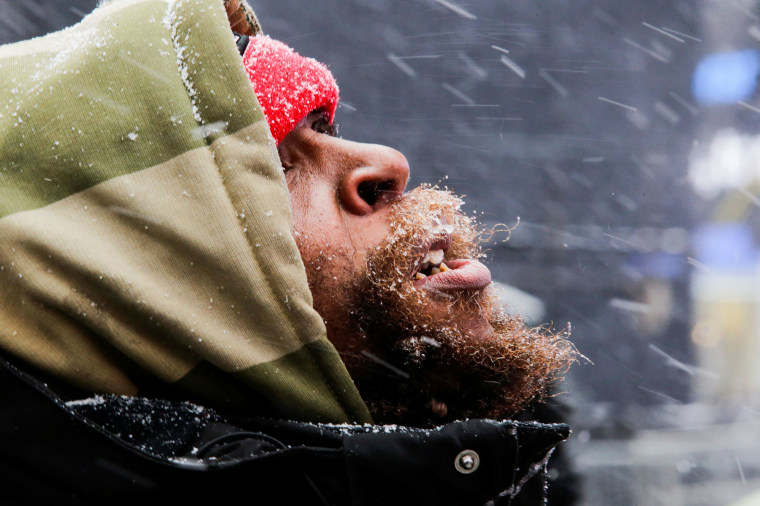
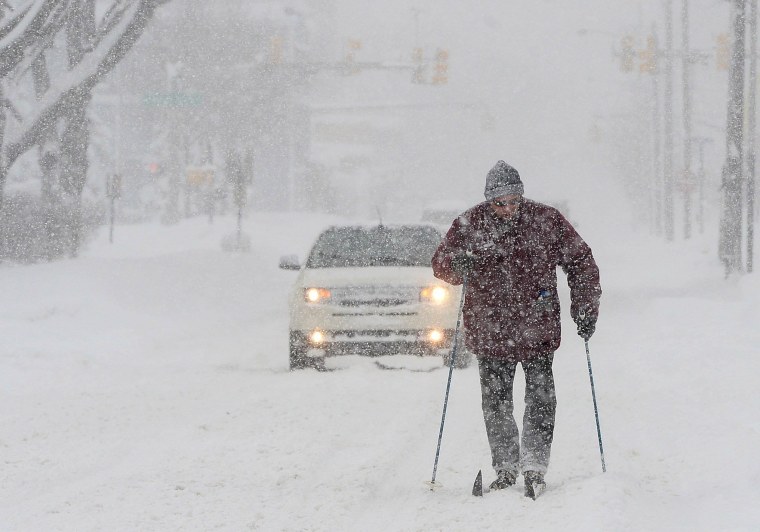
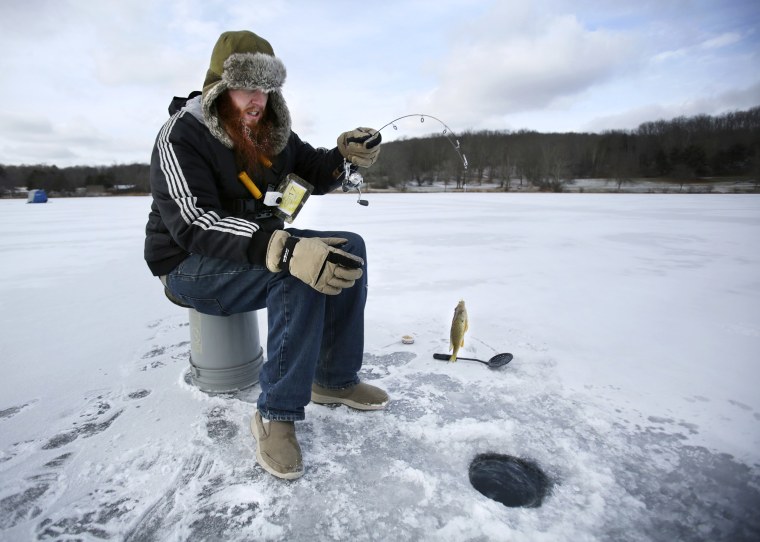
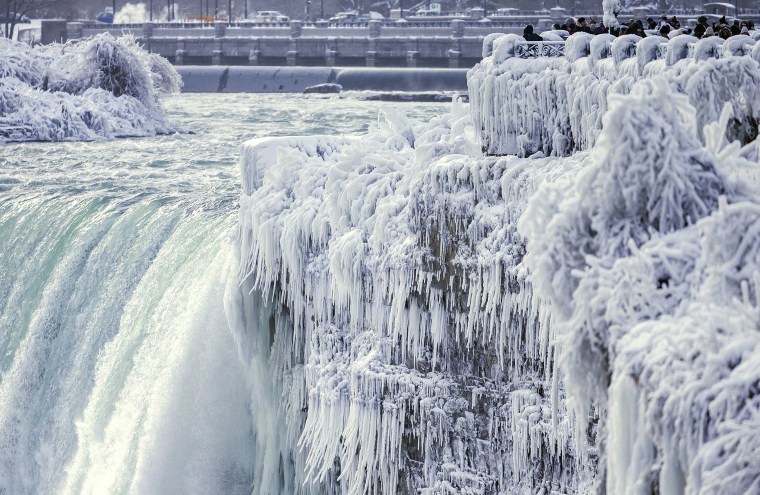
Ontario
Visitors take photographs at the brink of the Horseshoe Falls in Niagara Falls as cold weather spreads through much of the province on Dec. 29.
A bitter Arctic chill settled across Canada and much of the United States, forcing people indoors, leaving motorists stranded with dead car batteries and complicating firefighting duties.
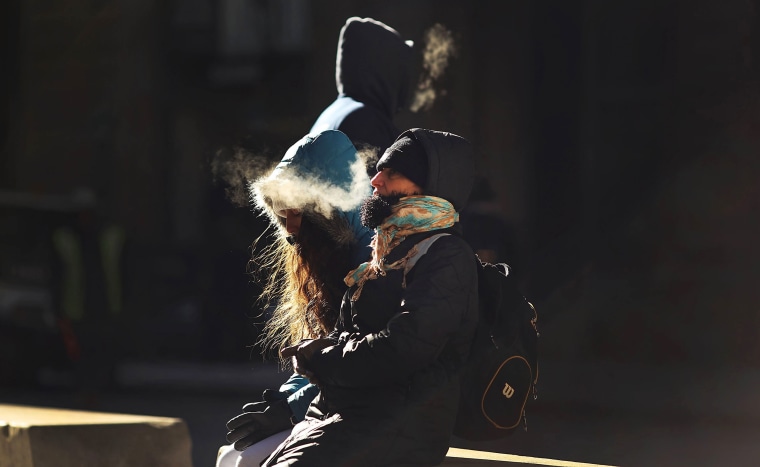
New York
People pause while walking through a frigid Manhattan on Dec. 28. Dangerously low temperatures and wind chills throughout the central and eastern United States are making outdoor activity difficult for many Americans. Little relief from the below normal temperatures is expected the first week of the New Year.
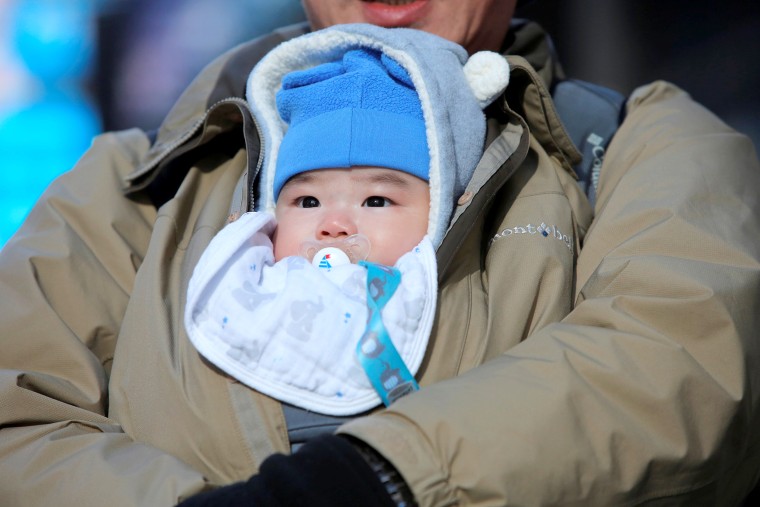
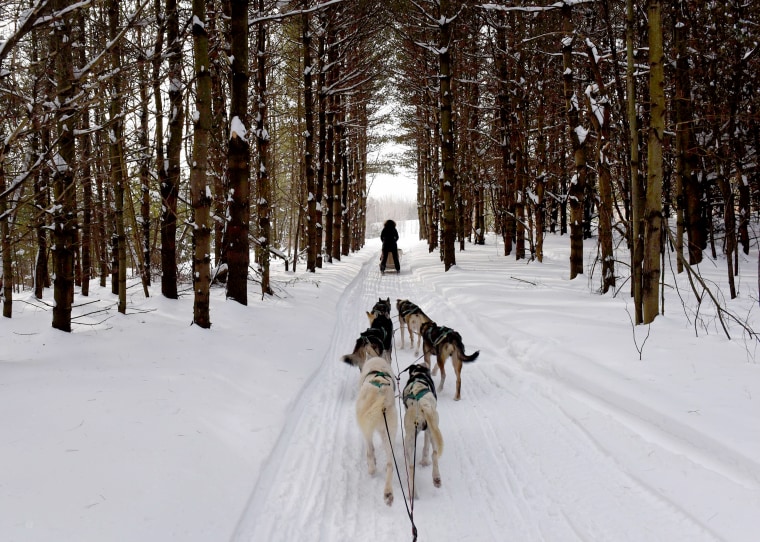
Quebec
A person rides through the Lanoraie forest on a dogsled on Dec. 28 in Lanoraie.
Environment Canada increased the number of extreme cold warnings around the country, bulletins issued only when the cold "creates an elevated risk to health such as frost bite and hypothermia." The Arctic temperatures are expected to last into early 2018, Environment Canada said.
